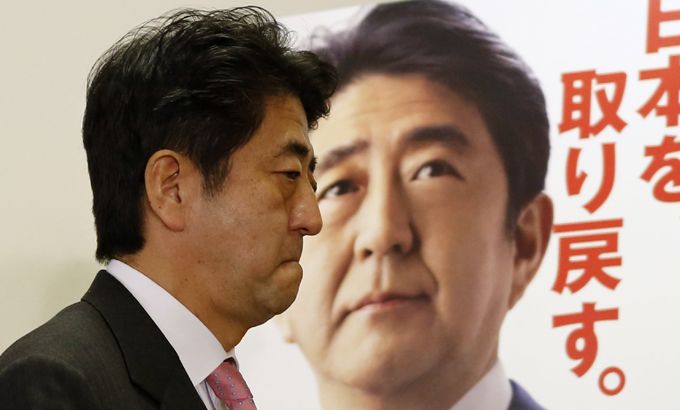
Where will Abe be leading Japan?
We look at the national and regional implications of the electoral win of Japan’s opposition Liberal Democratic Party.
Japanese voters have handed a landslide victory to the main opposition party, the Liberal Democratic Party (LDP).
Its leader, Shinzo Abe, set for a second stint as prime minister, has promised to revive Japan’s stagnant economy and stand up to an increasingly assertive China.
|
“I don’t think so much that the LDP won, it is more that the Democratic Party of Japan, the current ruling party, lost heavily.“ – Okubo Takuji, the chief economist at Japan Macro Advisors |
Analysts say the election result highlights a growing right-wing sentiment in Japan, and risks worsening the already-tense relationship between China and Japan.
The two Asian countries, which have the world’s second- and third-largest economies, are locked in a territorial dispute over a group of uninhabited islands.
“The Senkaku islands are Japan’s inherent territory. Japan owns and controls the islands under international law. There is no room for negotiation on this point,” Abe said on Monday.
So, in which direction is Japan’s new government likely to steer the country?
|
“The thing about this election is that it is a very substantial lurch to the right in Japanese politics and Mr Abe is not a very impressive politician in terms of his past record, and I suspect that much of the electorate was voting for the LDP as a default position …“ – Arthur Stockwin, the Nissan Institute for Japanese Studies |
- Abe has taken a tough stand on Japan’s territorial dispute with China
- His party, the LDP, says it would build a permanent facility on the islands, which is likely to further increase bilateral tension
- Abe has also called for a revision of Japan’s pacifist constitution and believes the country should have a more assertive regional and international presence
- He is also expected to reverse the previous government’s decision to abandon nuclear power after last year’s Fukushima disaster
- And in an effort to boost growth, Abe has promised more public spending and wants to ease Japan’s monetary policy
In this episode Inside Story with presenter Dareen Abughaida will be discussing the implications of Abe’s return to power on an already-volatile region, with guests: Okubo Takuji, the chief economist at Japan Macro Advisors; Andrew Leung, the CEO of Andrew Leung International Consultants; and Arthur Stockwin, a fellow and professor, and former director of the Nissan Institute for Japanese Studies at University of Oxford.
|
“There is a rise in right-wing politics in Japan and in fact the Japanese electorate is getting a little bit tired of decades of Japanese decline. First of all the Japanese economy was taken over by China and also Japan is seeing its international space of being increasingly reduced because of the rise of China. A lot of people in Japan were born after the Second World War and they do not understand why Japan should continue to have its ‘tail behind its back’ as it were. Andrew Leung, an independent China analyst |